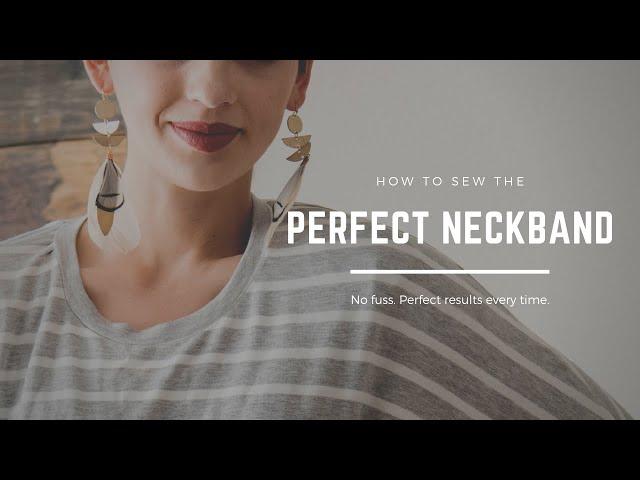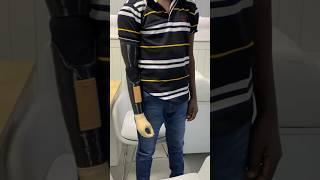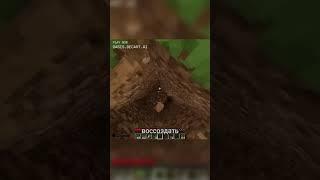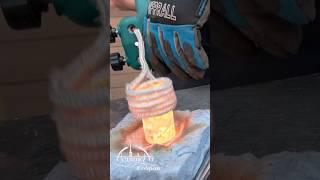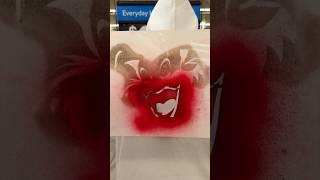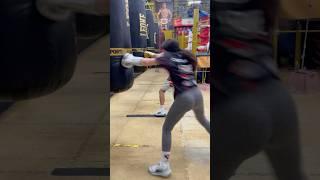Комментарии:

Where do you get your fabric? I love florals and never see them anymore.
Ответить
Thank you!!!!!!
Ответить
Best tutorial I've seen on this! Thank you!
Ответить
Brilliant idea to put the band on he bottom! It’s easier to see the main piece.
Ответить
One thing to note is that you can’t use a straight stitch on your regular sewing machine because it doesn’t stretch. She’s using a cover stitch machine single needle which allows the fabric to stretch because a cover stitch machine doesn’t sew a single stitch the way your regular machine does. A cover stitch machine creates loops on the wrong side while a regular machine creates your regular straight stitch. You may want to use a zigzag stitch on your regular machine or if you have s stretch straight stitch option on your machine.
Ответить
Thank you so much for this video! It saved by shirt and turned out perfect!
Ответить
What about allowing for the seam when you measure round the neck.
Ответить
I never sewed a neck band on before and followed your tutorial but neck band came out too small so after unpicking the band and remeasured and scratching my head I realized there was no mention of factoring in a seam allowance when attaching the two ends together. I was short 1/2inch and couldn't figure it for the longest time. Now, I need to go cut another band out. Crossing fingers it comes out right this time. 😅
Ответить
This Tutorial is going to help me Greatly with my sewing projects..... Thank You so much for this helpful video!!! 😊
Ответить
you sound just like pam from the office
Ответить
Very useful video.. this method workout for cotton clothes also?
Ответить
Thank you! If you topstitch with a single needle do you use a straight stitch or zigzag?
Ответить
What were your settings for the Brother coverstitch? (I have the same one so I'm curious!)
Ответить
What if I'm using a fuex suede that doesn't have much stretch? Does this method still apply?
Ответить
What should the seam allowance be?
Ответить
L*0.85 is helpful thank you
Ответить
I only have a ''normal'' sewing machine, not an overlock. Would you recommend me to do this neckband and in the way you did it? Or would you rather recommend me another type or another way to do it?
Ответить
Just watched your tutorial and immediately tried it on a stretch fabric neckline. It worked like a dream. This will be my go-to method in future. The calculation was exactly right. Thank you so much for this very informative tutorial.
Ответить
When you measure your binding by 85% do you add a bit for sewing the ends together or is it included in the 85%?
Ответить
Im brand new to sewing and am confused as to why you would multiply the number by 0.85 giving u a smaller number then the one u came up with?
Ответить
This was incredibly helpful! Thankyou so much ✨🌸✨🌸✨🙏
Ответить
I'm glad I'm not the only one using teeth!
Ответить
So perfect im going to try this thank you!!
Ответить
Hello would this technique be the same for the arm hole band?
Ответить
Thank you so much for this video.
My first neckline I redid 10 times and it still wasn’t perfect.
My one I’m working on I’ve redone 4 times.
I’ve just this minute watched your video, and completed it perfectly 1st time. I’m so chuffed!!!!
I was sewing it with the neckband uppermost and under the pressure foot, and always had 1 wee tiny fold of fabric when I came to the end.
Can’t thank you enough!! ❤️❤️❤️

Very helpful, thanks!
Ответить
Thank you SO MUCH for this tutorial!!!! I’ve always dreaded making and attaching stretch neckbands. Using your tutorial I finally made the perfect neckband and it looks fantastic ❤️
Ответить
Great tutorial! I actually used 75% on mine because it was really stretchy!
Ответить
Thank you for mentioning the ratio of .85. I have been searching videos and this is never mentioned. I can't wait to try this. Thanks again.
Ответить
You certainly have done a great, easy to follow tute! Kudos. Stress relieved!
Ответить
Best ever!!!
Ответить
Great tutorial , thanks
Ответить
This is by far the best me neckline tutorial.
I thought that part was a secret until I found your video, thank you!!!

So helpful!👍🏽
Ответить
Best tutorial ever. Ty so much.
Ответить
Thank you for this excellent tutorial. This is by far the clearest explanation and visual tutorial I’ve seen. You couldn’t have done it better! I’ve used it on my very first neckband years ago and just now referred to it once again! I will be sharing your video with others! God bless you for all you do!
Ответить
Could you please provide details on how you set up your serger? Is it a typical 4 thread?
Ответить
“I use my teeth, to be honest.” 🤣 Love the honesty! I do too! ☺️
Ответить
I miss you!
Ответить
✨I always refer back to this video ! 💕 Thank you so much for making it 🥰
Ответить
Thank you! This is the best tutorial I have found for this so far.
Ответить
It just baffles me that the neckband length and the opening wouldn't be the same length. I never would have guessed that! Why do you make the neckband only 85%? I would think that it would cause the neckband to get scrunched up since you pull ot during sewing but it doesn't because yours turns out beautifully.
Ответить
Hi there are lots of sewers who do not have a serger, so really your should also demonstrate how to sew this neckband using just an ordinary sewing machine.
Ответить
Very nice tutorial. I thought I was the only one who used my teeth. You're not a dork. Just using your resources.
Ответить
Thank you!! I don't have a serger, but this was so helpful. Especially as it's the only one I've found yet that said how WIDE to make the neckband! Thanks heaps. :)
Ответить
Great video! You’re the first person that I’ve watched so with the collar on the bottom, which makes sense to me if you have to pull the fabric and you want to make sure there’s no puckers on the inside, which is larger than the collar for stretch fabric. I’m about to do my very first collar and I’m terrified!
Ответить
I have been racking my brain trying to figure out my first neckline. THIS is the video that made it click.
Ответить
Great video, but would have been much more helpful if it wasn’t a black fabric being worked. I don’t understand how you did the top stitching at the end with a serger.
Ответить